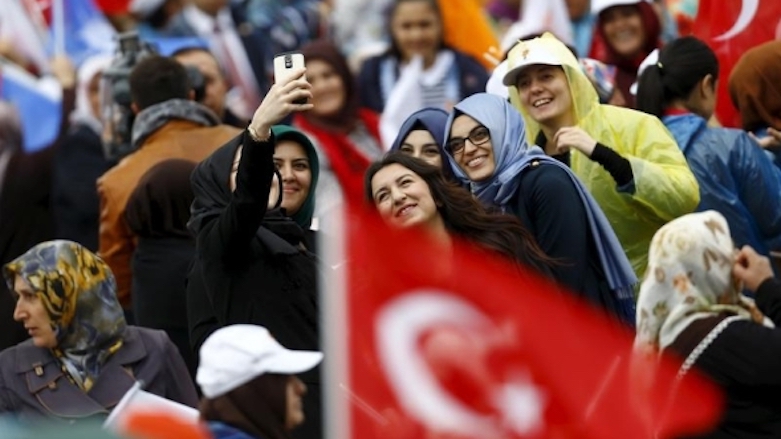Council of Europe tells Turkey snap elections' legitimacy at stake

ERBIL (Kurdistan 24) – A top European body promoting human rights and democracy warned Turkey on Tuesday about holding general and presidential elections one and a half years earlier than scheduled, a move by the government that caught the opposition off-guard.
Parliamentary Assembly of the Council of Europe (PACE) said amendments made by President Recep Tayyip Erdogan’s ruling Justice and Development Party (AKP) to the electoral law only one month before calling snap polls left little time for parties to adjust and complete their preparations for the elections.
Last week, Erdogan announced the elections would take place on June 24 after his far-right ally Nationalist Movement Party (MHP) leader Devlet Bahceli voiced support for the idea.
“Changing the election rules three months before Election Day is contrary to the recommendations of the Venice Commission,” PACE Monitoring Committee noted in a statement on its website.
The June elections will be the first of its kind as voters head to polls to elect an executive President with unprecedented powers as the system of governance was changed last year in a highly contentious referendum.
Erdogan hopes to consolidate his authority as the opposition tries to bring his rule to an end.
The Turkish response was quick.
Prime Minister Binali Yildirim whose office will exist no more told the European body to “mind its own business.”
PACE, older than the European Union (EU), deals with the democratic and human rights standards of its members which include Turkey as well as Russia among other non-EU nations.
“Instead of saying this, the PACE should not let the terrorist murderer Salih Muslim speak,” the Turkish PM said.
Muslim is the former Co-leader of the Syrian Kurdish Democratic Union Party (PYD) whose armed forces have been leading allies of the US-led Coalition in defeating the Islamic State (IS) that has staged massive attacks in Western countries.
The PACE also noted, “with regret,” that Turkey’s 10 percent electoral threshold—one of the highest in the world—was not lowered, arguing it further undermined political pluralism by sidelining single political parties.
For years, until the last elections in 2015, Kurdish parties have failed to enter Turkey’s national assembly due to the threshold.
Bekir Bozdag, a spokesperson for Erdogan’s administration, slammed the European call and described it as a “double standard and interference in Turkey’s internal matters,” in a Twitter post.
Another extension of an ongoing state of emergency on the same day elections were announced was “deplorable,” PACE said.
“It is impossible to hold genuinely democratic elections under the state of emergency and ongoing security operations in southeast Turkey,” it added, echoing concerns shared by the opposition parties.
Police entrance into polling stations upon request by one voter and electoral commission’s acceptance of non-stamped ballots, two new regulations and new amendments introduced were also beyond acceptable for the PACE.
Pro-Kurdish Peoples’ Democratic Party (HDP) and Republican People’s Party (CHP) have strongly criticized the new laws but expressed readiness to challenge the AKP-MHP alliance led by Erdogan.
Editing by Karzan Sulaivany
